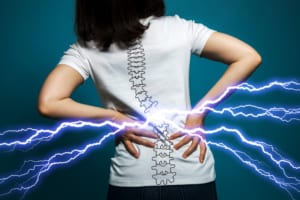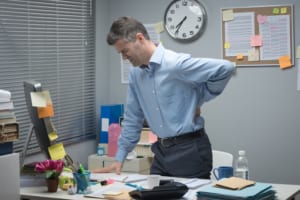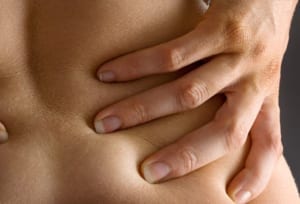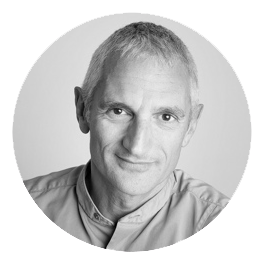
This year’s Backcare Awareness Week (8th to 12th October) focuses on back pain in older people. Awful at any age, back pain can be really disabling and miserable in the over 60s. BackCare, the National Back Pain Association, offers useful information and resources but I want to talk about how we can help sufferers of all ages at the Robin Kiashek clinics.
Impact on society
A staggering 80% of us will suffer with some form of back pain during our lives – at my osteopathic practice in London I see several sufferers each week. The human cost in terms of pain, misery, impairment plus the knock-on effects on family and friends is enormous. Factor in the economic impact – NHS statistics for 2016/17 show that a staggering 3.2 million days were lost to back pain – and we can see how society as a whole is affected. And we do abuse our backs, with long hours of driving, sitting hunched over a screen, heavy lifting and carrying, caring for children, the elderly or disabled and some very bad lifestyle habits!
Getting help for back pain
Here at The Robin Kiashek Clinics we aim to relieve pain and help strengthen the body, making it less susceptible to further discomfort or injury. Our range of gentle and effective treatments include Osteopathy, Western Acupuncture and Low Level Laser Therapy (LLLT).
We also recommend yoga. It promotes physical, mental and spiritual wellbeing and helps develop and maintain a fit and supple body. It is also an effective antidote to the stresses of modern lifestyle. A US study among 1000 long-term lower back pain sufferers found that those who practised yoga were most likely to see improved mobility and reduced pain levels. And classes are readily available and safe to try, whatever your age or level of fitness. All you need is a mat!
Based on the premise that prevention is better (or easier) than cure, here are some simple tips to maintain a healthy back:
Top tips for a healthy back
- Keep mobile – walking, cycling and swimming, (especially back stoke) will help your back to stay supple. Remember to take a short break from sitting every half hour.
- Reduce excess weight – extra pounds can place enormous pressure on the spine and muscles, exaggerating the curve of your lower back and causing your spine to become misaligned.
- Lift heavy objects correctly – bend at the knee, not the back. Carry heavy loads in a well-fitted rucksack, using both straps, rather than slinging a bag over one shoulder.
- Consider your posture – sit up straight, don’t slump in your chair. Use a laptop riser and walk with your shoulders back and head up (not staring at the ground!).
- Stop smoking – it can reduce blood supply to discs between the vertebrae and cause disintegration.
- Check your bed – does it provide the correct support for your weight and build?
- Manage stress – beat this leading cause of back pain by learning relaxation techniques, such as yoga, meditation or breathing.
Get in touch
If you are experiencing back pain then why not call The Robin Kiashek Clinics on 020 8815 0979 or request an appointment? We will assess you thoroughly and provide a personalised treatment plan, including exercises and guidance on preventing future occurrences. This can bring relief and even be life-changing and transformative, allowing you to regain and retain independence.

 Treating people with a range of back problems is a mainstay of any Osteopath’s job. Therefore, we welcome a campaign such as
Treating people with a range of back problems is a mainstay of any Osteopath’s job. Therefore, we welcome a campaign such as  Robin Kiashek has over two decades of experience in treating a range of painful conditions related to the spine. By providing a thorough assessment and a treatment plan, including exercises and guidance on how to prevent future occurrences, patients receive a personalised treatment plan well-rounded individual treatment that can bring relief and independence. If the problem is severe or prolonged, such as acute pain resulting from injury, a treatment plan can be adjusted over time to help a patient regain optimum movement and strength.
Robin Kiashek has over two decades of experience in treating a range of painful conditions related to the spine. By providing a thorough assessment and a treatment plan, including exercises and guidance on how to prevent future occurrences, patients receive a personalised treatment plan well-rounded individual treatment that can bring relief and independence. If the problem is severe or prolonged, such as acute pain resulting from injury, a treatment plan can be adjusted over time to help a patient regain optimum movement and strength. You will also recognise how life-changing good treatment is. At The Robin Kiashek Clinics the aim is to make treatment as transformative as possible, not merely temporarily effective. The treatment you will be given will not only relieve pain but help to strengthen the body in order to prevent further pain or injury. It is possible to relieve symptoms with an array of gentle treatments, all with your agreement, ranging from
You will also recognise how life-changing good treatment is. At The Robin Kiashek Clinics the aim is to make treatment as transformative as possible, not merely temporarily effective. The treatment you will be given will not only relieve pain but help to strengthen the body in order to prevent further pain or injury. It is possible to relieve symptoms with an array of gentle treatments, all with your agreement, ranging from 